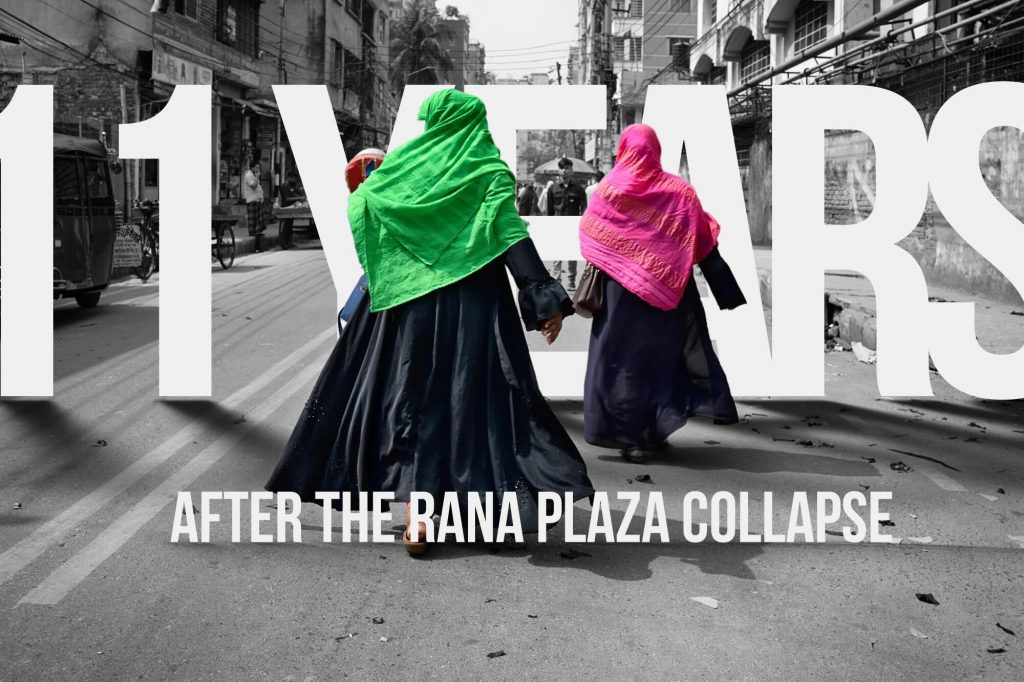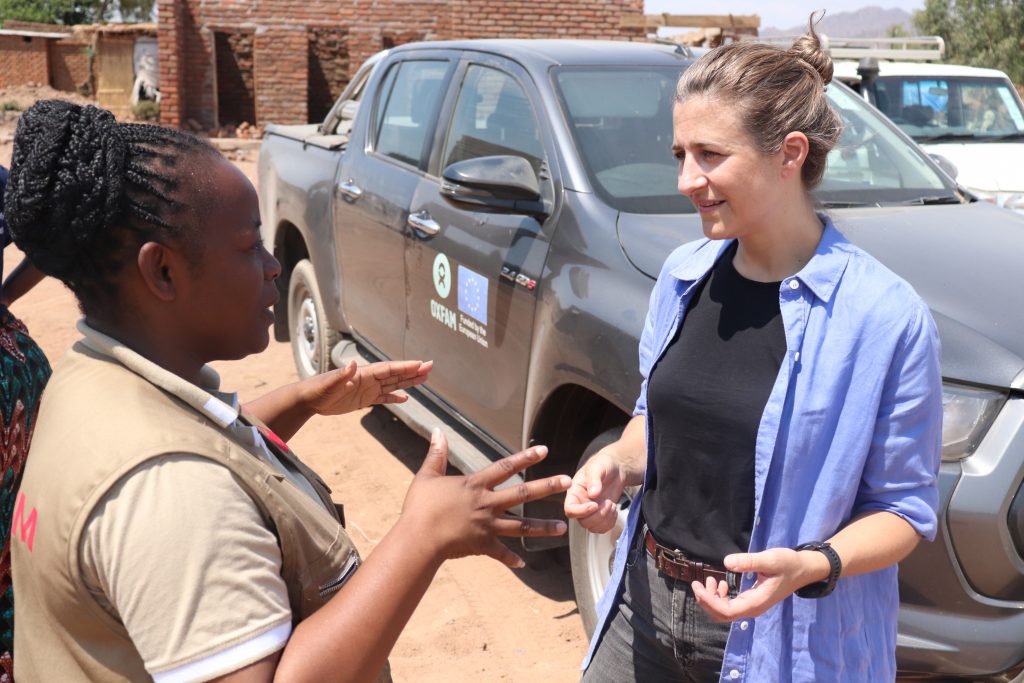Committed to Care at the Generation Equality Forum
Generation Equality Forum: A blueprint for gender equality
“Human rights are women’s rights and women’s rights are human rights” – a key refrain from the Fourth United Nations World Conference on Women in Beijing in 1995. This was a galvanizing moment for the women’s rights and feminist movement globally, putting forward a bold vision for the realization of all women and girls’ rights. But this vision has yet to translate into reality, and in the wake of COVID-19, many advances that had been made have now been reversed. It is against this backdrop that the Generation Equality Forum (GEF) took place this year, kicking off in Mexico in March and wrapping up in Paris in June.
Marking 25 years since the Beijing conference, the GEF (virtually) brought together nearly 50,000 people from government, civil society, youth and women’s rights organizations, businesses and philanthropy. Co-hosted by UN Women and the governments of Mexico and France and led by six Action Coalitions, the GEF provides a roadmap for achieving gender equality globally over the next five years.
World leaders put forward bold commitments
The Paris Forum closed with bold announcements totaling $40 billion USD. Some of the most impressive commitments included $2.1 billion from the Gates Foundation to advance women’s economic empowerment, health and family planning and to accelerate women’s leadership. Significant government commitments ranged from US Vice President Kamala Harris committing more than $1 billion in policy and resources towards gender equality domestically and globally – to the Government of Kenya launching a national action plan to address gender-based violence. Some of the private sector and civil society contributions included PayPal which made a commitment of $100 million to advance financial inclusion for women and girls, and $200,000 to launch the civil-society led Gender Just Climate Solutions Scale Fund.
Highlighting the care economy
Speaking to the impact of COVID-19 on women’s care workloads, significant announcements and commitments were made around the care economy. This includes the expansion of the Global Alliance for Care, initiated by the Government of Mexico and UN Women. Oxfam is a part of this Global Alliance, joining over 80 countries and civil society organizations mobilizing for policy and action that invests in the care economy globally. Additionally, the Government of Canada announced $100 million in new international funding assistance dedicated to paid and unpaid care work as a parallel to the $30 billion invested earlier this year to build out Canada’s national childcare system. This is significant, being the first targeted global investment in the care economy by a donor government.
These historic funding announcements are both welcome and much needed. However, where and how the money is allocated is equally important. Oxfam’s research shows that women’s rights organizations are continually underfunded and have particularly struggled during COVID-19. It’s critical the majority of this funding reaches women’s rights organizations, feminist organizations, women’s funds, and indigenous groups – especially those in the Global South.
Oxfam puts care at the heart of COVID recovery
Along with others, Oxfam has stepped up to this historic moment to make a set of public commitments on advancing gender equality by 2026 and beyond. Our commitment, ‘Care at the Heart of a Post-COVID Feminist Economic Recovery’ commits us to step-up our work on gender justice and the care economy.
Our focus on care in the GEF commitments is both relevant and timely. Care is the fabric of society and the engine of the economy. Across all corners of the world, the pandemic has revealed the disproportionate responsibility that women – especially the most poor and marginalized – carry for providing unpaid and underpaid care work, and the consequences for gender equality. Oxfam’s own journey on care spans almost a decade and has evolved from tools to understand and measure care work to an expanding body of care programming, research, advocacy and campaigning with partners and allies.
So, what are our commitments? They center on three external work streams and one internal work stream:
- Advocacy and campaigning – alongside partners and allies, push for greater recognition of and investments in care in pursuit of a feminist, climate and racially-just economic transformation.
- Building evidence of what works – sharing existing tools and developing new tools, research and best practice around care to support policy advocacy and campaigning on care.
- Movement-building – advancing the care agenda in coalition with grassroots feminist and women’s rights organizations and with linkages to the Global Alliance on Care.
- Living our values through internal policies and practices, where we need to look at issues including parental and care leave and diversity and inclusion policies and practices.
Making the path now and for the future
In the words of the Spanish poet, Antonio Machado ‘Al andar se hace camino’ – ‘We make the path by walking.’ As Oxfam knows all too well, it can be easy to say one thing and do another. Therefore, we must continue to define the standards for increasing investment and expanding programming to embrace different aspect of care for people and the planet.
By striving to match our policies and practices on care and diversity and inclusion with our words and actions, we are one step closer towards living our values as a feminist, anti-racist and decolonized organization. We have the opportunity to show courage in walking the talk and translating our intentions to action.
About the authors
Amar Nijhawan is a Women’s Rights Policy and Advocacy Specialist at Oxfam Canada (OCA). She leads OCA’s policy and advocacy work on gender and economic justice – with a focus on the care economy and research that explores feminist economic alternatives. Amar works collaboratively to advocate for feminist economic policy within governments, multilateral organizations, and international financial institutions. Amar has a decade of experience working on policy issues related to gender equality, economic development, and sustainability across Canada and internationally.
Amber Parkes is a Global Advisor on Women’s Economic Empowerment and Care with Oxfam Great Britain (OGB). She leads OGB’s global policy advocacy and influencing to shift policies and norms to value and invest in unpaid and underpaid care work. Her work focusses on the intersections of care and inequality, linking national to global feminist research and policy advocacy. She has worked on women’s economic justice and gender equality for over a decade with Oxfam, UNICEF, the Equality Institute and the Australian Government.
Julie Thekkudan is a Gender Justice Content and Synergies Consultant with Oxfam International. She works collaboratively to bring more coordination and cohesion across Oxfam. Her current work focuses on the intersections of economic inequality and gender justice, particularly on care work, gender-based violence and other structural forms of violence, feminist leadership and movement building. She has over seventeen years of experience working on various issues related gender justice within Indian and international organizations.

